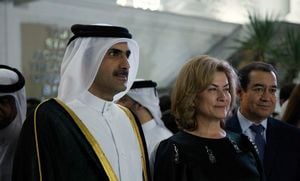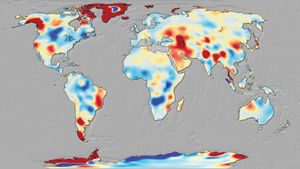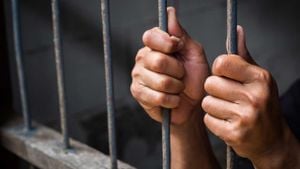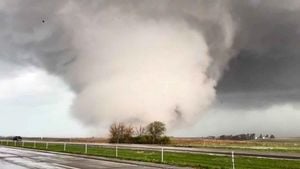U.S. President Donald Trump's proposal for the resettlement of Afrikaners, the white minority group in South Africa, has ignited strong responses from leaders within the community. On Sunday, February 9, Dirk Hermann, CEO of the Afrikaner trade union Solidarity, stated, “Our members work here, and want to stay here, and they are going to stay here. We are committed to build a future here. We are not going anywhere.” This sentiment reflects the resistance from the Afrikaner community against the idea of leaving their homeland.
Kallie Kriel, CEO of the Afrikaner advocacy group AfriForum, echoed these sentiments, asserting, “We have to state categorically. We don’t want to move elsewhere.” Their determination to remain stems from deep roots within the country, as well as the socio-economic realities they face.
The controversy traces back to an executive order Trump signed on Friday, February 7, which cut off aid to South Africa over alleged human rights violations against white citizens. The order came amid accusations from the Trump administration claiming violent attacks on white Afrikaner farmers and the implementation of land expropriation laws allowing the government to seize land without compensation.
These assertions were backed by Elon Musk, Trump's South African-born adviser, who claimed the country's Black leadership fosters anti-white sentiments. Trump's actions, viewed as punitive, raised eyebrows due to the historically complex racial dynamics in post-apartheid South Africa.
Responding to the executive order, the South African government swiftly rejected the allegations. Ronald Lamola, the South African Minister of International Relations and Cooperation, criticized the statements, emphasizing the misleading nature of the claims being made. He asserted, “It is ironic the executive order makes provision for refugee status in the US for a group in South Africa who remains among the most economically privileged.” Lamola pointed out the inequality still present post-apartheid, highlighting how 30 years after its end, white South Africans continue to enjoy economic advantages.
According to studies, whites comprise about 9% of the population yet retain ownership of approximately 70% of the nation’s private farmland. A review by the South African Human Rights Commission reported stark disparities: just 1% of whites live below the poverty line, contrasted with around 64% of Black South Africans grappling with poverty.
This debate surrounding land, race, and rights has gained traction internationally, with various observers noting the historical grievances still influencing public sentiment. Trump's remarks have drawn criticism from advocacy groups fighting for racial equality, which assert the narrative of white victimhood oversimplifies complex socio-economic issues.
The Afrikaner response showcases their desire for stability and development rather than displacement, contributing to dialogues on reconciliation and mutual coexistence. Reports have highlighted their view of discrimination, framing their plight as one of political maneuvering rather than real victimization.
While some white South Africans express feelings of marginalization, South Africa's current political stance fosters discussions on inclusivity within diverse racial groups, aiming to cultivate equity and combat historical injustices. Against this backdrop, the pushback from Afrikaner leaders suggests their refusal to abandon hope for their future at home, instead veering toward advocating for their rights within the present socio-political framework.
Trump's isolationist rhetoric can be seen as neglecting the gradual progress made by South Africa since the dismantling of apartheid. The incident serves not only to highlight enduring racial tensions within the nation but also reflects the complexity of international intervention based on racial narratives.
The discussion surrounding Trump's proposal illuminates the intersection between global politics and local socioeconomic realities, as both the South African government and the Afrikaner community confront the outcomes of such confrontations. The polarizing effects of Trump's administration continue to reverberate within South Africa, prompting varying interpretations of historical narratives and fueling national debates on identity, belonging, and justice.



